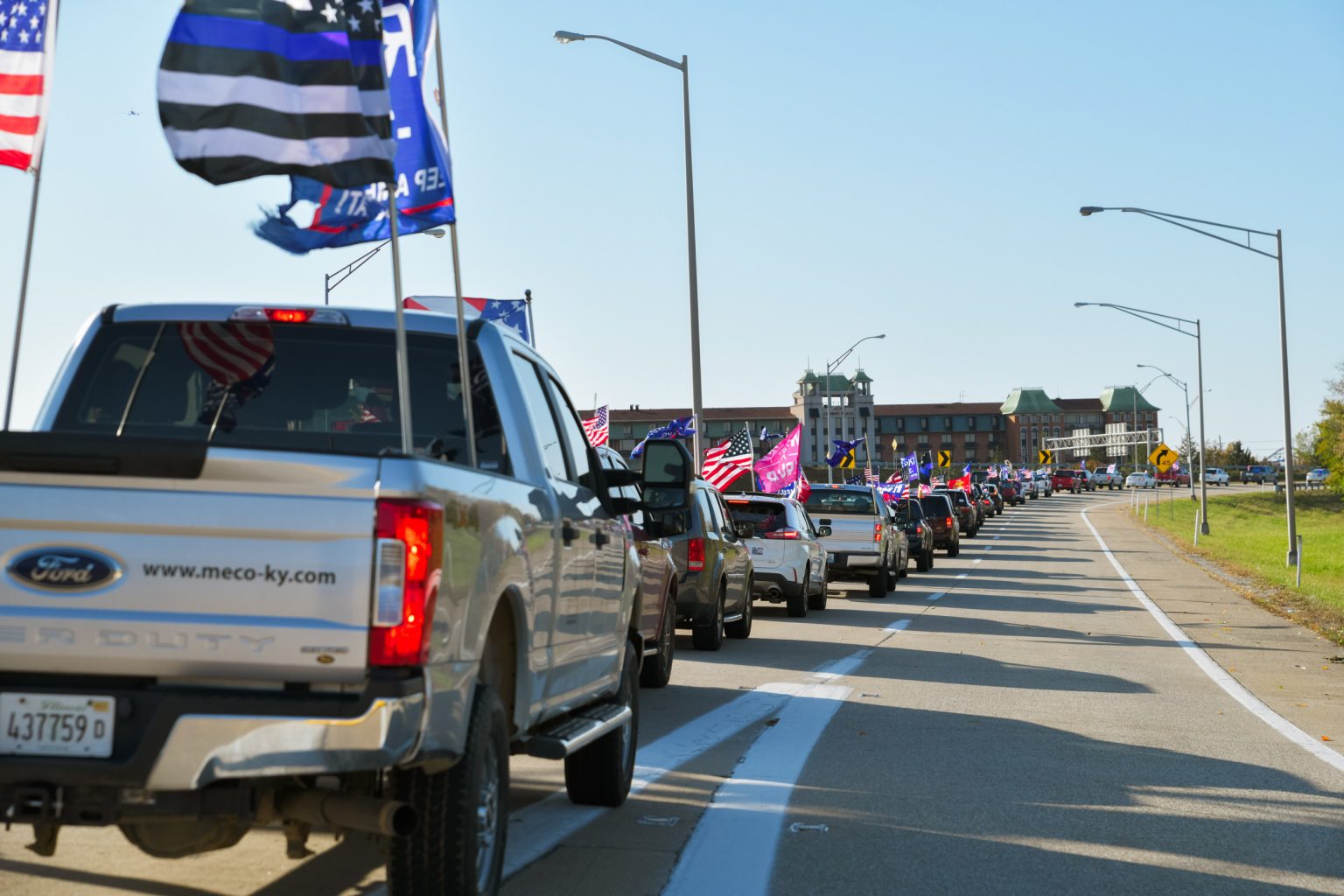A trial in Texas involving the “Trump Train” highway confrontation is set to begin this week. The trial centers on accusations that supporters of former President Donald Trump disrupted the Biden-Harris campaign by harassing a campaign bus in Texas prior to the 2020 presidential elections. Democratic members aboard the bus reported feeling terrorized as they were surrounded by Trump supporters in trucks and cars for over 90 minutes, almost causing collisions and forcing the bus driver to swerve to avoid accidents.
The lawsuit against the “Trump Train” alleges that the defendants terrorized and menaced the occupants of the bus, playing a dangerous game of highway “chicken” and attempting to run the bus off the road. Former Texas state senator Wendy Davis, known for her 2013 filibuster against an anti-abortion bill, is one of the plaintiffs in the case. The lawsuit names six defendants and accuses them of violating the “Ku Klux Klan Act,” a federal law from 1871 that prohibits political violence and intimidation. Videos of the incident shared on social media showed cars and pickup trucks with Trump flags surrounding the campaign bus, boxing it in, slowing it down, and blocking its exit from the highway.
In November 2020, the FBI announced an investigation into the incident, which led to former President Trump defending his supporters, stating that they did nothing wrong. The lawsuit also claims that the FBI and Justice Department should be focusing on organizations like ANTIFA instead. The trial is expected to shed light on whether the actions of the defendants were protected under the First Amendment right to free speech or if they constituted threats and intimidation that were not protected expressions under the law. Judge Robert Pitman, appointed by former President Barack Obama, will preside over the trial.
The allegations against the “Trump Train” defendants touch on a broader issue of political violence and intimidation, invoking historical laws like the Ku Klux Klan Act that were put in place to protect voting rights during the Reconstruction Era. The trial underscores the deep political divisions in the country and the heightened tensions that characterized the 2020 presidential election and its aftermath. As Vice President Kamala Harris continues her bid for the White House following President Biden’s decision not to seek re-election, the trial brings attention to the challenges and obstacles faced by political campaigns in an increasingly polarized and contentious political climate.
The testimony and evidence presented in the trial will likely determine whether the actions of the defendants constituted threats and intimidation or were protected forms of expression under the law. The case raises important questions about the limits of free speech and the rights of individuals to express their political beliefs without resorting to violence or intimidation. Judge Pitman’s handling of the trial will be crucial in determining how the law applies to cases of alleged political violence and intimidation, particularly in the context of an increasingly divided and contentious political landscape in the United States. Ultimately, the outcome of the trial will have implications for how future incidents of political confrontation are addressed and prosecuted within the legal system.


